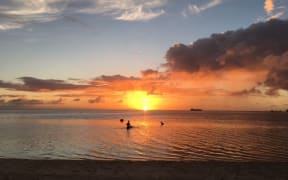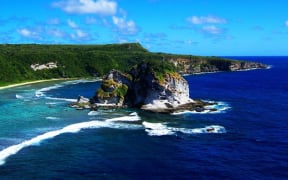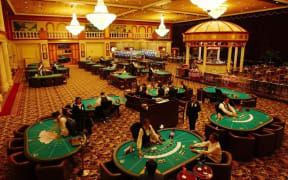The Northern Marianas tourism sector is opposed to US military plans to use local islands for training purposes.
Tinian and the pristine volcanic island Pagan are being sized up by the Pentagon as live-fire training sites for units associated with a large build-up of marines in neighbouring Guam.
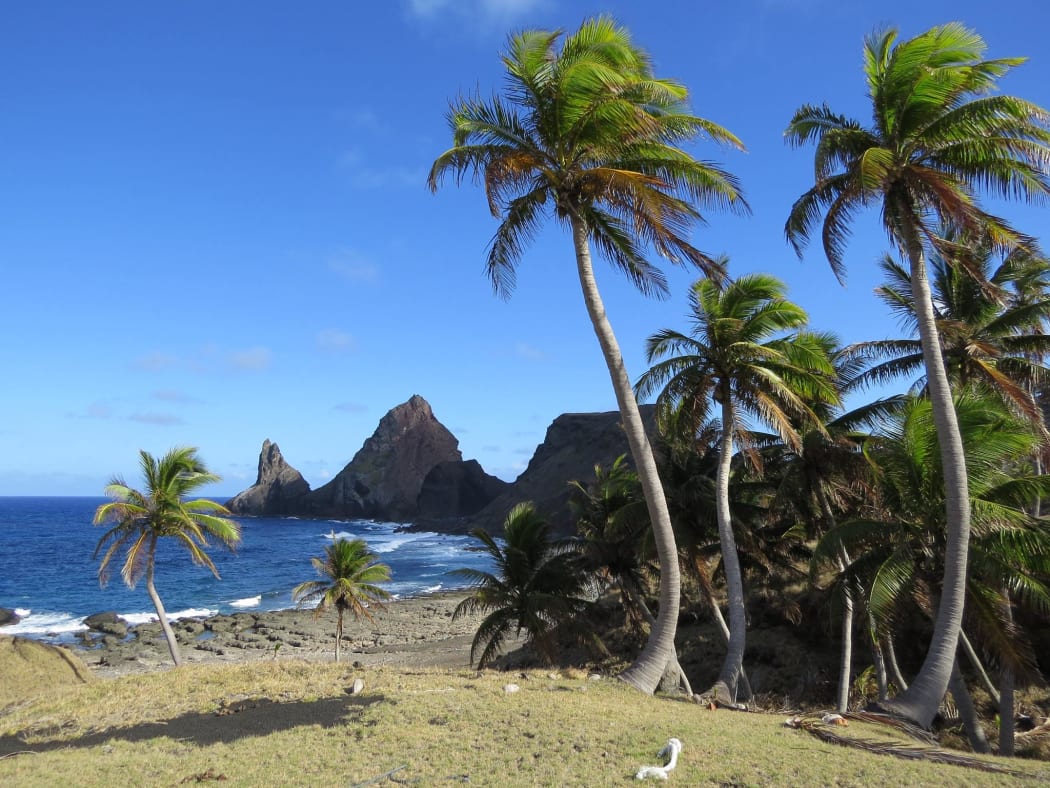
The volcanic island of Pagan in the Northern Marianas. Photo: Peter J. Perez
The plans are the subject of ongoing discussions between the Pentagon and the Commonwealth of the Northern Marianas government. However they are seen as a threat to tourism in the Marianas, which was recently rated the world's third fastest growing tourist destination.
The US military's large presence in Guam is set to grow in the next several years. The Managing Director for the Marianas Visitors Authority, Chris Concepcion said the tourism sector was concerned about what US military expansion into the commonwealth could entail.
"We predict it will do damage to our tourism industry, and more so to our environment and our way of life here in the Marianas," he explained.
"We are opposed to their plans to turn Tinian and Pagan into live-firing ranges. And so the tourism industry has stated our position."
RNZ Pacific asked Mr Concepcion which out of military presence and tourism provided more benefits for the commonwealth in terms of revenue and economic activity.
"By far it's through tourism," he replied. "The US military contributes very little, an insignificant amount of revenue to the islands as compared to tourism which provides about 90 percent of the GDP for the Northern Marianas.
"The military side of things here has very minimal impact on our economy. So we're not quite interested in having them come in and doing damage."
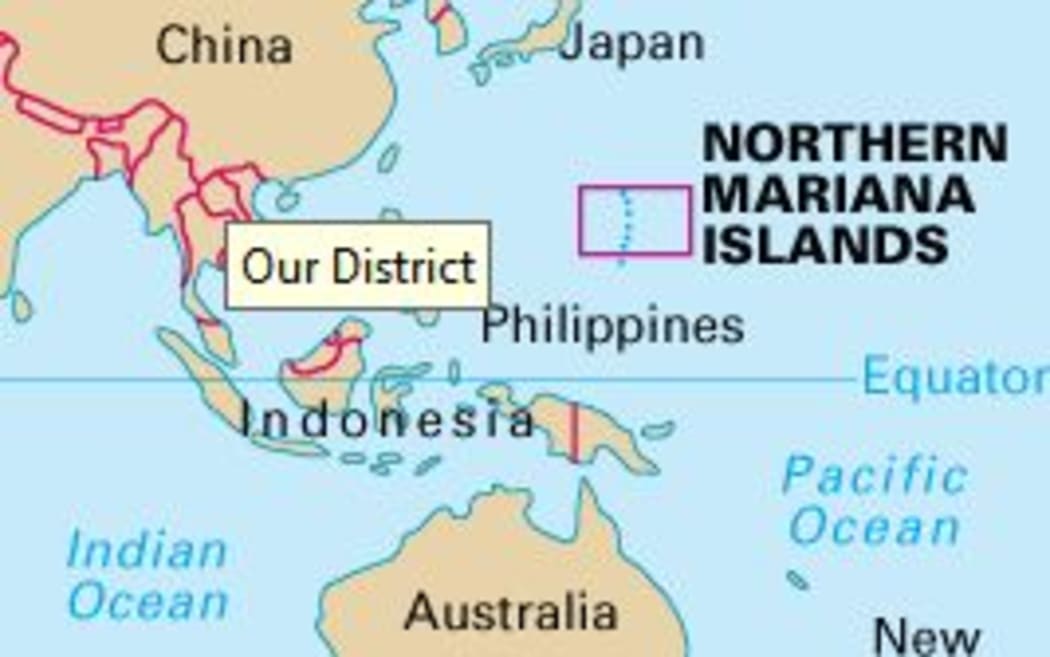
Map of the Central Western Pacific. Photo: sablan.house.gov
Mr Concepcion noted the recent media attention on Guam after the North Korean regime said it would target the island for a missile strike. He said the Marianas was not in any danger.
"Because we are not a target, we don't want to alarm the market. We are of course a lot closer to Korea because we are north of Guam," he said.
"But as far as military presence hurting us, I don't think that it does necessarily hurt us because we don't have such a big presence that Guam has."
Korean factors
This week, as Pyongyang fired its latest missile - this time over northern Japan and into the sea - the governor of the Marianas assured residents that there continued to be no indication of an imminent threat.
Ralph Torres said the CNMI Homeland Security and Emergency Management agency remained in close contact with Guam and military partners.
In Guam itself, where loyalty to the US has rarely been in question, local support for the military presence this week showed its limits.
Dozens of people upset over the US military plan for a new live-fire range in Guam staged a protest in front of Governor Eddie Calvo's office.
The military last week awarded Black Construction Corporation a US$78 million contract to build the range on an area of land that the indigenous Chamorros community said was too culturally and environmentally important to damage.
The US Naval Command in Guam indicated it would take steps to minimise harm.
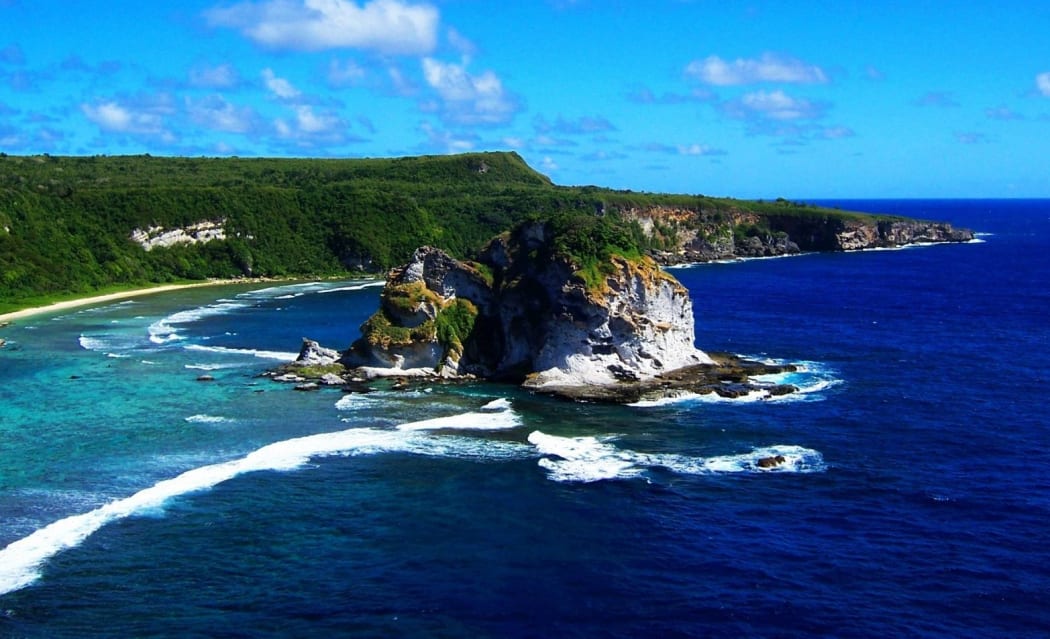
The waters near Bird Island lookout in Saipan Photo: RNZI / Mark Rabago
Earlier in the month, Guam received another, more high-level form of reassurance from the US, when President Donald Trump got on the line to Mr Calvo. This was in the immediate wake of North Korea's threat to strike Guam waters.
Mr Trump told the Guam leader not to worry about a thing, that the US would ensure the safety of the island's people. The president also told Mr Calvo that the global attention on Guam due to the threat would be a boon for tourism.
"I can say this, your tourism is going to go up like tenfold with the expenditure of no money, so I congratulate you," said Mr Trump.
Next door in the Marianas, where for now there is no active military presence, tourism is enjoying a remarkable run. Tourist arrivals to the commonwealth in 2016 grew by just over 37 percent on the previous year. The dominant tourist market for this destination is South Korea.
